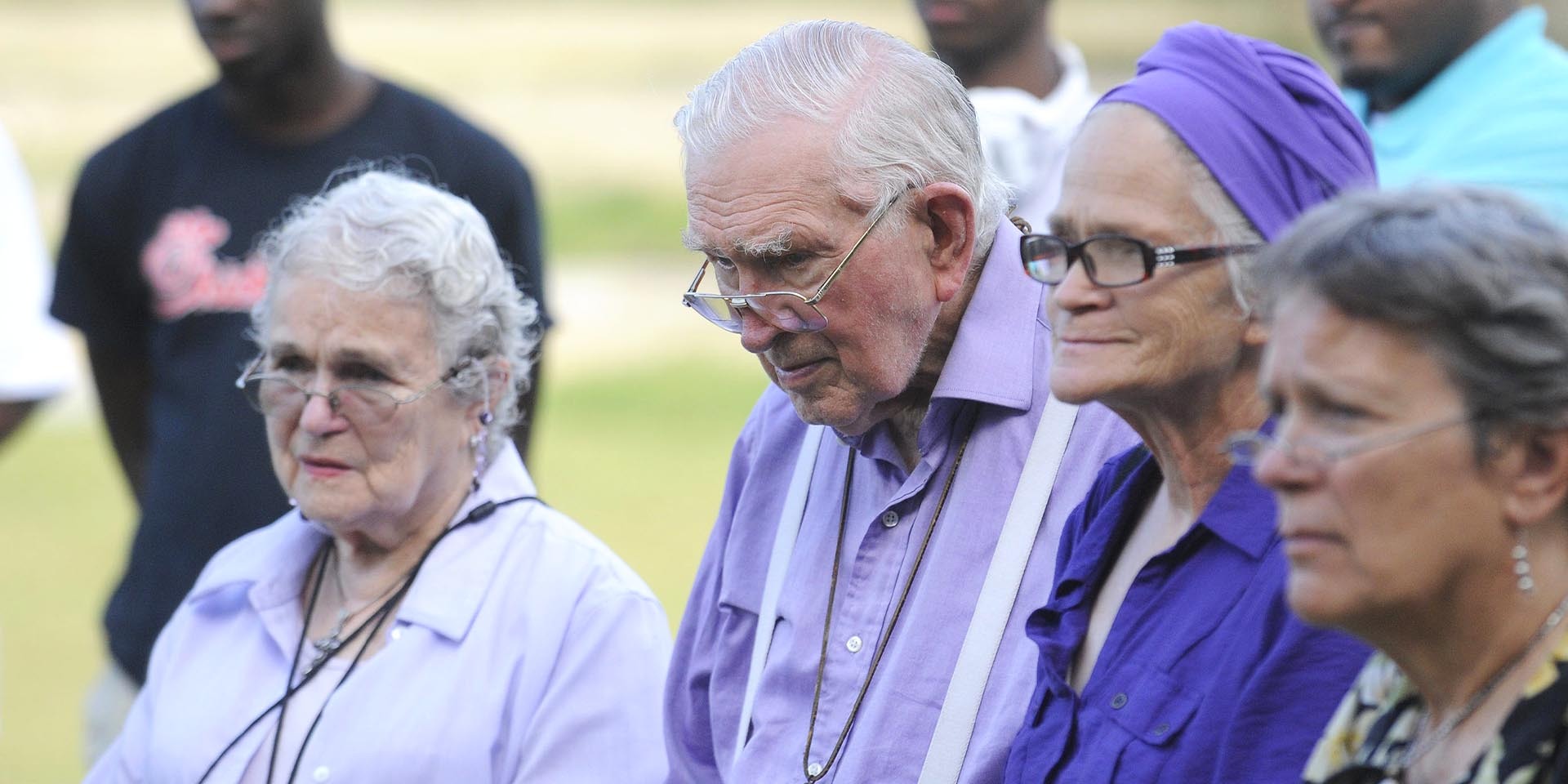Growing up as the eldest child of civil rights pioneers the Rev. Robert S. Graetz Jr. and Jean Graetz was a unique experience.
Although I was only a child, I vividly remember my years in Montgomery, Alabama, during the bus boycott that my parents supported.
Those memories include:
- Playing in the front yard when cars of white men with rifles pointed at us would drive by hurling hateful racial slurs at us.
- Boldly facing the white policemen outside our home after the first bombing by the Ku Klux Klan — and yelling in my biggest preschool voice, “You go away, you big, bad policemen!”
- Playing games our mother taught us, such as “Hide!” When she said the word, we would run giggling and squealing to hide behind our big stuffed couch. To us, it was a fun game. In reality, it was to train us to quickly find shelter in case of another bomb.
- Waking up in the middle of the night to loud booms after the KKK bombed our house again.
But there were also joyful memories, like playing with friends in the makeshift “swimming pool” in our yard (a tractor tire covered with a tarp and filled with water). Our parents called it the first integrated swimming pool in Montgomery, since our friends were Black and we were white, and it was against the law for us to swim together in the city’s pools.
I will always remember the energy of purpose and determination that permeated all of us. There was a feeling of hope and dire necessity that has stuck with me my whole life. Our family was surrounded by the presence of the “circle of love” with our beloved friends, neighbors and supporters who became part of our extended family. Our dear friends who risked their lives and the lives of their families by befriending us.
These dear friends are still entwined with our family to this day. In that microcosm of our lives in Montgomery, we were all demonstrating what Martin Luther King Jr.’s vision of the “Beloved Community” could look like: a society in which all people respect and accept each other with love, regardless of the differences that sometimes divide us, and in which we strive for freedom and justice for all people and stand boldly against oppression in all its forms.
Now, 70 years after the historic Montgomery Bus Boycott that galvanized the Civil Rights Movement, we still have much work to do to realize that dream in our society at large. It’s up to all of us to carry on the legacy and continue to relentlessly and courageously strive toward that dream.
As part of this ongoing effort, we invite you to join us at the 14th annual Robert and Jean Graetz Symposium on Human Rights and Reconciliation on April 10 from 9 a.m. to 4 p.m. at the Montgomery Interpretive Center at Alabama State University in Montgomery.
The event will honor Fred Gray, the attorney who argued the Browder v. Gayle Supreme Court case that ended segregated busing; Jeremiah Treece, the high school senior who organized a petition drive to remove Confederate symbols from the Montgomery city flag; and others in the community. The keynote speaker will be Emmy Award-winning CNN correspondent Nick Valencia.
The theme of this year’s symposium is “Building the Beloved Community: From Walking to Marching to Healing and Thriving.”
To attend the event, please register here.
Let us all stand and build the “Beloved Community” together.
Meta Ellis is the board chairperson for the Robert S. and Jean E. Graetz Foundation, the director of Montgomery Pride United and co-founder of the Bayard Rustin Community Center in Montgomery, Alabama.
Image at top: In a photo from June 25, 2015, Jean Graetz, left, the Rev. Robert S. Graetz Jr., center, and Meta Ellis, second from right, attend a memorial service at Alabama State University in Montgomery for victims of a church shooting in Charleston, South Carolina, in which nine were killed and one was injured. (Credit: Mickey Welsh via Imagn Content Services)



